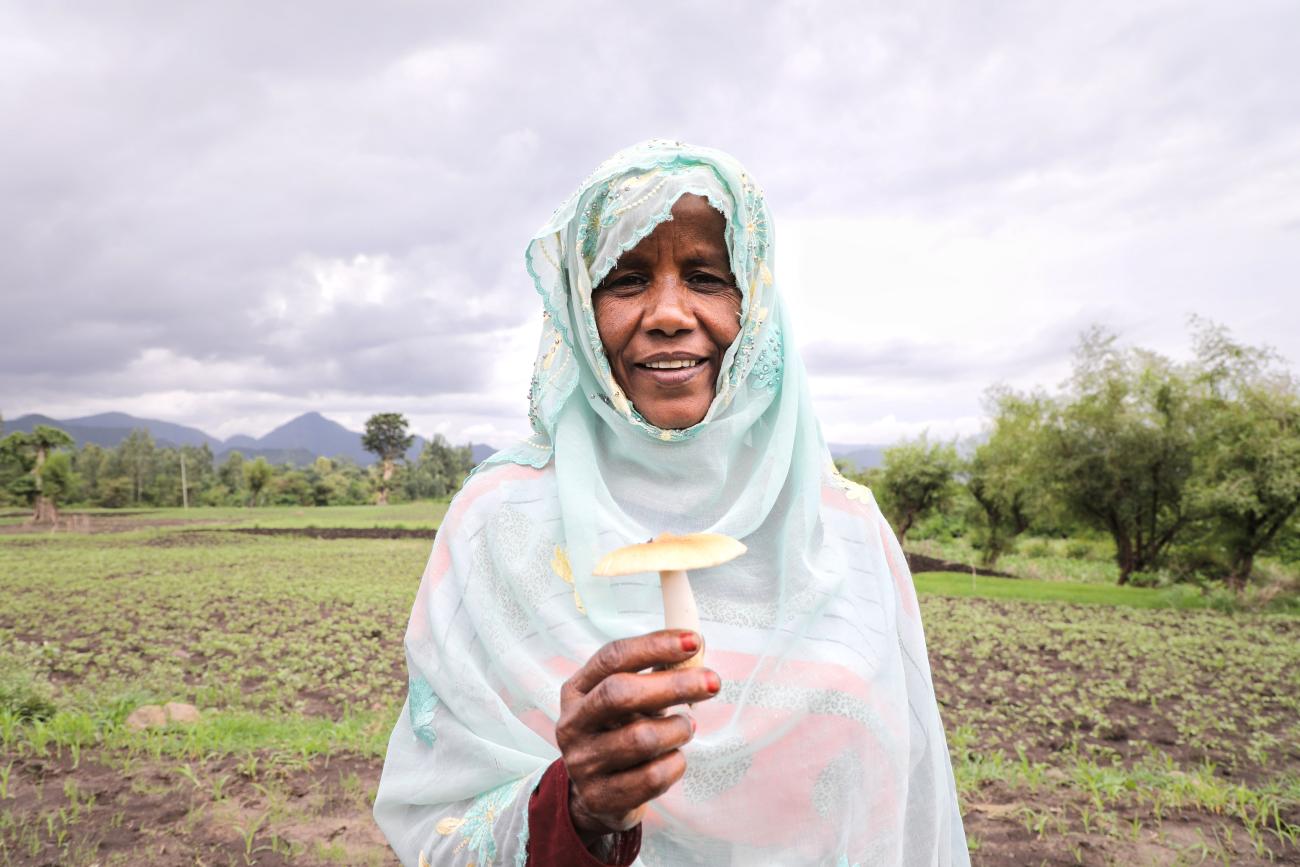A Seed of Hope: Building Livelihoods and Resilience to Climate Change in Ethiopia

IOM’s community-based livelihood support provides communities with opportunities to increase resilience to climate change, while generating income.
“I have travelled to Saudi Arabia as an irregular migrant multiple times. I was a farmer, but I didn’t have fertile land to cultivate and there weren’t any job prospects here at the time,” Usman shared. He is one of the many farmers in his village of Berebeyu, located some 500 kilometers away from the Ethiopian capital of Addis Ababa, who are grappling with the devastating impacts of climate change.
The drought in Ethiopia is one of the worst the country has seen in 40 years. Combined with seasonal floods and land degradation, many residents are forced to migrate irregularly to seek livelihood opportunities. Unfortunately, this coping strategy leads many villagers back to where they started from – and the same cycle of frustration that prompted their initial migration.
Climate change is not the sole reason for many villagers to move, but it amplifies existing insecurities like poverty and unemployment.
“I thought of leaving before too. I saw my neighbors building their homes after working abroad. I just stayed because I do not have the courage to leave my family,” Ergo, also a farmer from the village, said.
Usman and Ergo regularly attend “Community Conversations”, an initiative led by the International Organization for Migration (IOM) which provides a space for community members and returnees to come together and discuss the dangers of irregular migration and explore alternative livelihood options. The platform encourages accountability among various stakeholders to share responsibility and promote the participation of community members.
The lack of livelihood opportunities forms a large part of these conversations. As a result, community members identified existing resources and then worked with IOM to construct an irrigation system to enable village farmers to cultivate 50 hectares of land. The local government authorities also supported the initiative by allocating the land and expertise.
“Aligned with the Government of Ethiopia’s priorities and addressing the country’s vulnerability to climate change, IOM’s community-based livelihood support takes into consideration environmental sustainability, focusing on providing communities with opportunities to increase resilience to climate change, while generating income,” said Bawele Tchalim, Programme Manager for IOM Ethiopia.
More than 80 per cent of Ethiopians live in rural areas and largely rely on subsistence farming for survival. Ethiopia, like all countries in the Horn of Africa, is highly vulnerable to extreme weather events, with floods and droughts being the most common hazards. Climate change induced migration is expected to worsen in the coming years.
This project, in collaboration with the local implementing partner Ethiopian Evangelical Church Mekaneyesus Development and Social Service Commission, aims to rehabilitate the environment while supporting the reintegration of migrant returnees and providing livelihood for community members.
This project is made possible with the generous support of the Netherlands Government and the European Union.
This story was written by Kaye Viray, Media and Communication Officer for IOM Ethiopia.

